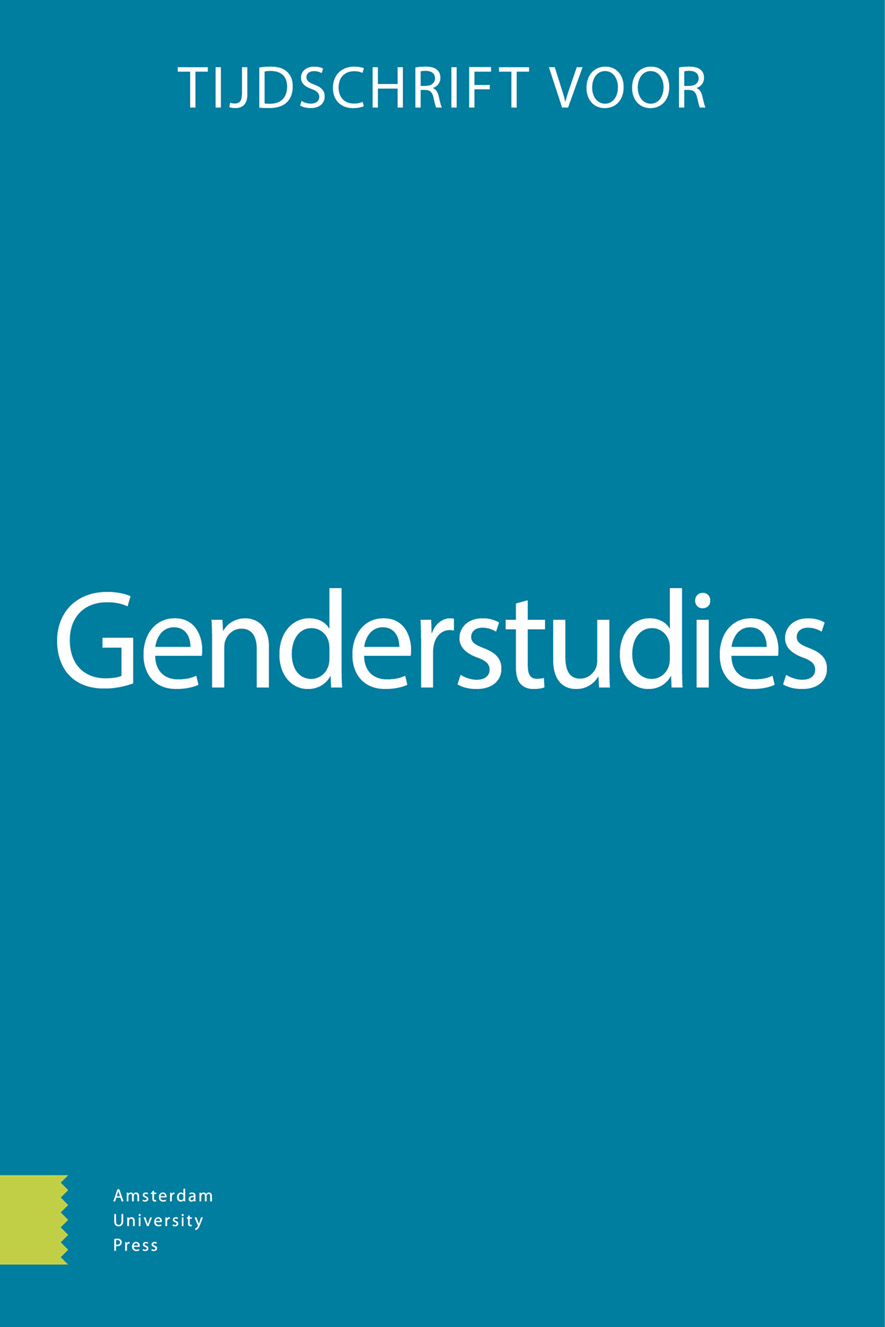- Home
- Publications
- Tijdschrift voor Genderstudies
- Previous Issues
- Volume 22, Issue 4, 2019
Tijdschrift voor Genderstudies - Volume 22, Issue 4, 2019
Volume 22, Issue 4, 2019
-
-
Pas de deux, out of step
More LessAuthor: Wannes DupontAbstractThis article aims to complement two earlier ones by Theo van der Meer and Joke Swiebel in the previous issue of this journal (Swiebel, 2019; Van der Meer, 2019) on the history of homosexuality’s criminalisation in the Netherlands by exploring the same theme from a Belgian perspective. Whereas article 248bis of the Dutch penal code raised the age of consent for homosexual relations from 1911 to 1971, its highly similar Belgian counterpart, article 372bis, was only adopted in 1965 and repealed again in 1985. The analysis will not only devote attention to this striking chronological divergence, but also point to important parallels and cross-border connections. While, individually, this contribution is primarily an attempt to tentatively contextualise homosexuality’s legal history in Belgium, it may be hoped that, together with Van der Meer’s and Swiebel’s, it may serve as a call for more much-needed comparative research on the history of (homo)sexuality in the Low Countries.
-
-
-
Communist daughters
More LessAuthor: Elke WeesjesAbstractThis article explores communists’ attitudes towards gender roles and sexuality in Britain and the Netherlands during the Cold War (ca. 1948–1970). It looks at the changing roles of women in the communist movement in the public sphere, as well as the changes in practices of gender relations in the communist home—that is, the private sphere. This article, which is based on interviews with Dutch and British individuals raised in communist families, argues that communist children who were taught progressive theories while simultaneously witnessing traditional practices in the home were spurred to feminist thinking and so joined the movement in its early stages. In light of these findings, this article makes the case for the inclusion of communists in the vanguard of feminism in Britain and the Netherlands.
-
-
-
Emancipation on thin ice
More LessAuthors: Michiel De Proost & Gily CoeneAbstractA growing number of women in different countries are freezing their eggs as a way to preserve fertility not just for medical reasons, but for what have been referred to as ‘lifestyle’ or ‘social’ reasons. Ethical debates so far have often focused on reproductive autonomy and gender inequalities in society. Based on a critical analysis of the available studies that explore women’s experiences, we conclude that women’s choice to freeze their eggs is much more ambiguous than mainstream approaches to bioethics usually suggest. Furthermore, we point to a gap in the literature of social egg freezing regarding issues of reproductive justice, including the multiple and intersecting structural conditions that govern who has access to this technology, and tease out some issues that still need to be further explored, such as the outcomes and quality of treatment for non-normative users. Expanding the debate with an intersectional analysis makes visible, as we demonstrate, how techniques such as social egg freezing fit into, and contribute to the propagation of, neoliberal gendered, heteronormative, and racialised societies.
-
-
-
Making it like a man: Men, masculinities, and the modern career
More LessAuthor: Clarice BlandAbstractMale homosociability is still a prevalent aspect of working culture and although many women are now participating in these same circles, it is still largely centred around the idea that men’s groupings are the ones that dictate the professional environment. The conference Making it Like a Man: Men, Masculinities and the Modern Career, which took place at the University of Helsinki on the 25th and 26th of October 2018, illuminated this idea by introducing new perspectives on the connection between men and careers. The conference was necessary because merely acknowledging the divide in work environments between men and women does not show the connection between masculinity and careers, and neither how masculinity manifests itself in a variety of ways and socio-economic structures. Although the presentations stemmed from academic research, the language and structure of the conference was such that it was accessible for anybody from any background. Anyone with an interest in gender studies, or anyone who simply ever questioned gender stereotypes, would have found something of interest in the conference. Both historical and critical approaches were adopted in order to examine the diverse array of masculinities in professional and personal environments, as well as how both men and women participate in and reproduce these in modern working life. Presenters from four different continents and a variety of background experiences came together to discuss their own research on masculinity and what makes a man.
-
Most Read This Month

Most Cited Most Cited RSS feed
-
-
Fifty shades of white
Author: Anna Safuta
-
-
-
Emancipation on thin ice
Authors: Michiel De Proost & Gily Coene
-
-
-
Editorial
Authors: Sara de Jong, Rosalba Icaza, Rolando Vázquez & Sophie Withaeckx
-
- More Less

